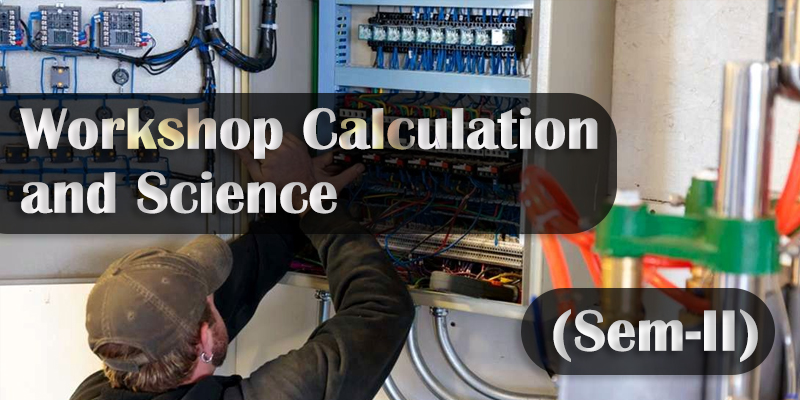
Core skills enhance knowledge, Analytical ability, problem solving ability, understanding or comprehending drawings & designs and also enriches on scientific principles. At the same time it creates the base for achieving Hard skills. To carry out any skill related task the know how about basic science & related calculation is essential as it helps in scientific way of executing the task.
Presently the employers wants not only simple execution of assigned task but also give weightage on Innovative ideas in work place along-with problem solving. A person can stimulate innovative ideas and solve problems if he possesses basic core skill such as (Calculation and Science). More importantly the productivity of a person also enhances and gives confidence to person to perform task competently.
Recognising this importance the core skills (Workshop Calculation and science) made an integral part of all Engineering Trade run under NCVT. The content of Workshop Calculation and science is common for first two semesters for all Engineering Trades having more than two semesters. The content of 3rd & 4th semester is made specific to trade to fulfill the requirement of each trade.
Workshop Calculation
Algebra : Addition, Subtraction, Multiplication, Division, Algebraic formula, Linear equations (with two variables).
Mensuration : Area and perimeter of square, rectangle, parallelogram, triangle, circle, semi circle, Volume of solids – cube, cuboid, cylinder and Sphere. Surface area of solids – cube, cuboid, cylinder and Sphere.
Trigonometry: Trigonometrical ratios, measurement of angles. Trigonometric tables
Workshop Science
Heat & Temparature: Heat and temperature, their units, difference between heat and temperature, boiling point, melting point, scale of temperature, relation between different scale of temperature, Thermometer, pyrometer, transmission of heat, conduction, convection, radiation.
Basic Electricity: Introduction, use of electricity, how electricity is produced, Types of current_ AC, DC, their comparison, voltage, resistance, their units. Conductor, insulator, Types of connections – series, parallel, electric power, Horse power, energy, unit of electrical energy.
Levers and Simple Machines: levers and its types. Simple Machines, Effort and Load, Mechanical Advantage, Velocity Ratio, Efficiency of machine, Relationship between Efficiency, velocity ratio and Mechanical Advantage.
